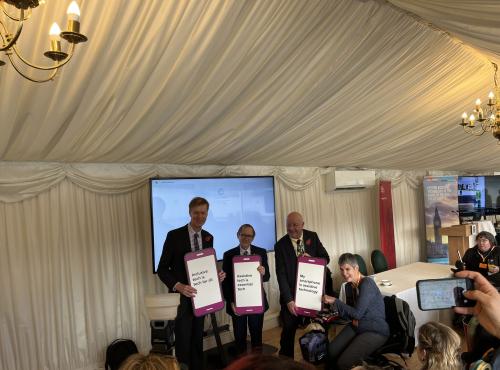Design Commission - People and Places: Design of the Built Environment and Behaviour
Design Commission report calls on devolved governments, mayors and local authorities to step up in the wake of the housing crisis, social cohesion and better living space planning.
The Design Commission has recognised that it is how people react that matters – how they work and interact- whether they keep active and healthy. The Commission has come up with solid evidence in difficult areas about what in our built environment makes our lives better. It has looked at what can make us healthier, what can make communities get on better with each other, what can preserve our air quality and save energy and what can enable higher productivity.
Policy making for the built environment has traditionally been centralised, but muddled and fragmented.
We argue that there are clear design principles that can be led at different governmental levels, and that the private sector has a key role to play as a behavioural change leader, rather than simply an implementer of policy.
The Design Commission believes that in designing and constructing the environments in which people live and work, architects and planners are necessarily involved in influencing human behaviour. Throughout this inquiry, the Commission showcase case studies and best practice examples of how infrastructure can be used to design for positive behaviours and how design-led planning policy can create environments in which individuals and communities thrive.
This inquiry draws on a number of submissions and reports, from Government, Parliament, research bodies and the private sector. It also takes into account the devolution agenda, City Deals and the new Industrial Strategy, alongside recent developments at the Ministerial level.
The inquiry heard evidence on four specific areas that are believed to improve the relationship of citizens within the built environment. This report is structured around those four areas:
- Healthy behaviours
- Environmentally sustainable behaviours
- Socially cohesive behaviours
- Productive, innovative and creative behaviours
This project was kindly sponsored by the BRE Trust. The BRE Trust is the largest UK charity dedicated specifically to research and education in the built environment.



